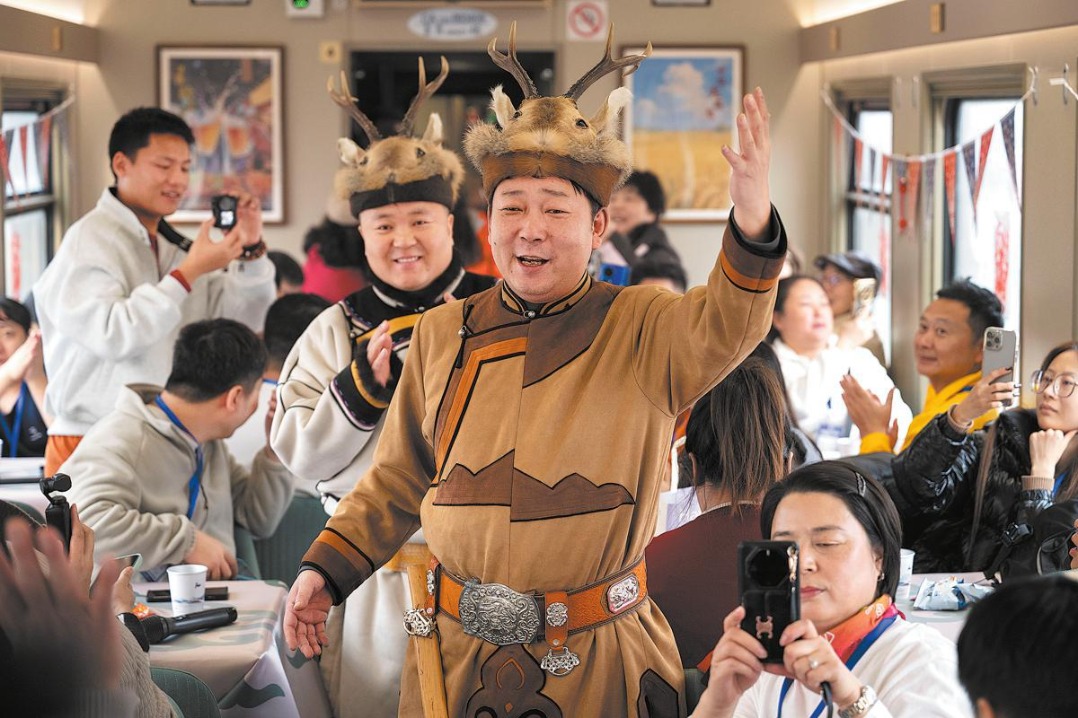Focused narrative boosts China's say
By LI QINGYUN | CHINA DAILY | Updated: 2023-09-23 08:37

The 19th Asian Games, which opened on Saturday in Hangzhou, Zhejiang province, and will continue till Oct 8, will see the participation of athletes from across Asia and exhilarate audiences around the world with the display of traditional Chinese culture and the sports spirit of China. Indeed, sports galas are excellent occasions to showcase the culture and traditions of the host country and city.
Although the profound changes in the global landscape have created new strategic opportunities for China, the country still faces obstacles to development due to some countries resorting to trade protectionism and rising anti-globalization sentiments in some parts of the world. As such, China is likely to face more Western containment policies, uncertainties and challenges in the future.
In the new era, to strengthen its discourse and narrative, China must make greater efforts to make the world better aware of its history, boost the nation's cultural self-confidence, and take measures to overcome the risks and challenges.
First, this is the time for China to transform its position from "victim" to "victor" after decades of struggle and hard work, during which the Communist Party of China has led the people to develop the Chinese path to modernization, which has been recognized by the international community and has enhanced China's global status.
The country should therefore capitalize on the new strategic opportunities, in order to tell China's stories, including the CPC's glorious history, more confidently, seek more ways to better integrate its narrative with the overall global narrative, and project China's real image to the world.
Second, China needs to combine the basic tenets of Marxism with the country's condition and traditional culture to ensure the world hears China's voice.
China's narrative in the new era should focus on not only presenting the facts about China's civilization, but also explaining to the world why Marxism works in China, and has helped boost Chinese-style modernization. Only by doing so can China have a bigger say on the global stage, and move ahead with more confidence on its chosen path of development.
Third, China's narrative in the new era should focus on its unique political and social system, cultural advantages, and the Party's leadership. The three pillars have helped the country move closer to achieving the rejuvenation of the Chinese nation.
China's traditional culture and governance, and the Party's political culture have contributed significantly to the development of socialism with Chinese characteristics. They have created a new model for social advancement and boosted China's self-confidence. Therefore, China needs to be confident of the development path it has chosen and the culture of socialism with Chinese characteristics, and reach a position from which it can play a bigger role in global governance in the new era.
Fourth, China should also make efforts to fix the problems and shortcomings of its narrative. China is adept at building its grand narrative. But it should also make more efforts to address, if not resolve, burning global issues because without that it cannot expect to evoke the empathy of the West.
It is important to realize that despite being interested in China's rich civilization, people in many countries cannot understand the importance of Chinese cultural values due to the huge gap between the global and Chinese narratives. China's political narrative cannot be successfully disseminated across the world because its media discourse is not accepted by people in other countries, while its academic narrative is still in the early stages of development.
So to effectively disseminate its narrative, China needs to align it with the target readers' cultures and thought processes.
Fifth, China's key task at present is to accelerate the development of its discourse and narrative systems amid the rapidly changing global landscape, for only logical narratives can help boost China's quest to achieve national rejuvenation. Therefore, China's narrative should take advantage of the country's traditional culture, and highlight the common values of different cultures, and the humongous benefits of global cooperation for humankind and international harmony to be more acceptable worldwide.
And the Asian Games provide an apt occasion to showcase Chinese culture, and disseminate China's narrative.
Amid all this, China should not forget that the strength of its narrative hinges on its development and prosperity.
The author is an associate professor at the Institute of Chinese Marxism, Shanghai Academy of Social Sciences. The views don't necessarily reflect those of China Daily.
If you have a specific expertise, or would like to share your thought about our stories, then send us your writings at opinion@chinadaily.com.cn, and comment@chinadaily.com.cn.
























